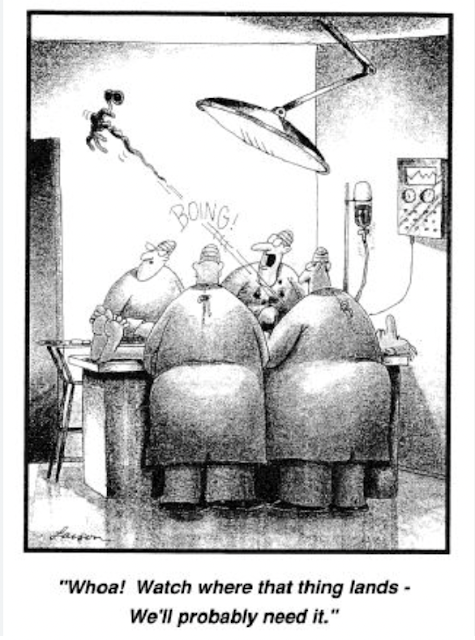If, in a few hundred years, historians (assuming humans still exist) seek to understand the fall of the Republican party, followed closely by the fall of the United States, they’d find it perfectly encapsulated in the murders, a couple of weeks ago, in a Colorado LGBT nightclub. It’s all there.
Increasingly desperate for a hook on which to reel in voters for whom they’ve had nothing to offer, legislatively, ever since electing Ronald Reagan, leaders and media mouthpieces of that once-respectable party have turned to denigration. Aimed at the LGBT community, immigrants, people of color, and, just reaffirmed down Mar-a-Lago way, Jews. Except in a couple of states, Trump’s voter fraud lie is losing appeal, so attacking non-straight, non-white, non-Christian, non-native-born people it is.
Whenever hate crimes are committed against those groups, the flame-fanners deny responsibility. Tucker Carlson makes millions pushing lies about “grooming” children. Screaming Marjorie Taylor Greene and gun-slinging Coloradan Lauren Boebert get elected on it. Ron DeSantis hopes to become president on it. Rightwing media marinate in it. But when someone takes their hideous mendacity seriously and does some murdering about it, the well-rehearsed response from the purveyors is “Who, me?” Followed, when culpability is suggested, by cries of “politicizing a tragedy.”
How deeply embedded is their incendiary, malevolent anti-LGBT rhetoric? The father of the murderer, himself a former porn star, said this on hearing what his son had done: “… I go on to find out it’s a gay bar. I got scared, 'S#!t, is he gay?' And he’s not gay, so I said, phew… I’m a conservative Republican and we don’t do gay.” Phew, indeed. Just an assassin. To a Foxified “conservative Republican,” there’s worse, evidently. Data for historians.
A war veteran, and Hispanic, the man who took down the shooter was there with his wife, adult daughter, and daughter’s boyfriend (who was among those murdered). After what he’d seen and done in combat, he’d sworn off guns; took the guy down bare-handed.
This embarrassed the good-guy-with-a-gun (and white-supremacist) crowd, who, rather than praising him as they did delusional, self-righteous killer Kyle Rittenhouse, attacked him for bringing his family to a drag show. Because, you know, something-something drag shows. Had he stopped the massacre with a gun, he’d have been all over rightwing media; offered jobs, encouraged to run for office. Like Rittenhouse.
Colorado has “red flag” laws. The shooter had previously exhibited numerous red-flag behaviors. But, having declared his county a “Second Amendment sanctuary,” the local sheriff, along with several others in other Colorado counties (and now, sadly, some in neighboring Oregon) had pledged not to enforce those laws. And didn’t. Historians take note.
Adding to the historical record came the aftermath. Uber-monger Tucker had on his show a woman with this to say: “… the tragedy that happened in Colorado Springs the other night, it was expected and predictable.” Was she referring to Tucker’s previous tirades? Of course not. “I don’t think it’s going to stop until we end this evil agenda that is attacking children,” she added, referring to helping trans children, all but excusing the motives of the criminal.
Former Trump attorney, Jenna Ellis, chimed in with this about the victims: “… There is no evidence that they were Christians… They are now reaping the consequences of eternal damnation.” God sides with murderers, evidently. Historians may find that informative.
Which returns us to Mar-a-Lago, where Trump dined last week with outspoken antisemite Kanye West, along with white supremacist, holocaust denier, attendee of the Charlottesville “Jews will not replace us” rally, Nick Fuentes. Trump claims he had no idea who Fuentes was. He did, however, know Kanye’s antisemitic views, and invited him. By now he knows all about Fuentes, too. Has he disavowed him? Nope. Praised him. "He gets me."
At this point, some readers are composing letters accusing me of characterizing all Republicans as racist, homophobic, antisemitic, xenophobes. Rather than addressing their unacknowledged projection, let’s celebrate this week’s passage of the imperfect but important Respect for Marriage Act. Whereas seventy percent of senate Republicans voted no, around thirty percent said yes. Non-hateful Republicans do exist, and when they’re willing to partner with Democrats, it doesn’t require a majority of them to make good things happen.
Fox “news” and the rest of rightwing media are all in on grooming haters. So is Trump. Nothing will get those democracy-rejecting sheriffs and other no-regulation absolutists to listen to reason. But if actual conservatives would spend less time being offended by critics and more time working to change their unconservative party from within, Republican leadership might rejoin our democracy. And, in time, rid us of their traffickers in performative hate, ready to waste the next two years doing nothing but “sticking it to the libs.” Historians could study that happier phenomenon.









